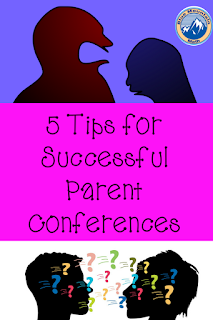I remember as a new teacher looking forward to parent conferences, and parent calls home, and parent visits, etc. Yes, I was a typical, over the top, optimistic new teacher.
That did not last long. That first year taught me several things about parents, students and my role in the classroom in dealing with both. And like all things, parents and students have changed.
1) It Isn’t a Popularity Contest. And if it was—you lose. Parents, guardians, family always chose the child. It doesn’t matter what the child is doing in your classroom, the child is right. Even if the police or fire department have been called and you have video evidence, you are wrong.
This took me a long time to understand, and it should not have. I am a parent, but my son is all grown up and when he was in school, authority was always right. Not any longer. So if you are having a meeting about the child keep it positive and purposeful. No tattling…
2) If the Child is Present, Make them Talk No, I am not talking about coercing the student into revealing some troubling or embarassing story. Ask the student to tell their parent about what is going well in class. Make notes about their responses. Ask the student to tell about what they think they could do better. Make more notes. Then ask the student how YOU can help. Make notes.
If your school does not have students present, or student is not available and you know this in advance, ask the questions before the meeting (in private, not in front of other students) and discuss the answers with the parent. It is much more powerful to have the student speak, but it has value to have the student voice heard even if they are not in the room.
3) Parents Care about Results. Parents want to know if their child is learning and if the child is not, then what can YOU do about it. Parents equate learning with grades. They want to know if there is homework that is missing and can still be turned in, or a test retaken, etc. They want extra credit. They want to know if YOU can tutor their child one-on-one. They want results.
Prepare a list of things that can be done to improve and have that ready. Having a checklist for the parent and student will give both goals for improvement and make your life easier.
4) Be Ready with Grade Reports Have the grades and assignment listings ready for the parent to take home. Being prepared with your grade/assignments list and a checklist of goals will prevent a lot of questions and concerns. It is hard to argue with cold, hard facts. But assure the parent that even if the grade is ____, improvement is always possible.
But only if it is true. I never lie to parents and I never make a promise about grades. I once told a parent that if their teen continued to work hard, he would be close to a B by the end of the semester. All the parent heard was “B for the semester”. And it caused a lot of grief.
5) Follow Up with the Parent Let the parent know how they can reach you for any further questions. I always tell parent that they can call or email, but let them know that I have OCD where email is concerned and will respond ASAP whereas phone may take up to 24 hours, depending on the time of day. Email is always easier for me, it is a personal preference.
One suggestion is to offer the parent a weekly grade/behavior report. A check off slip of paper to show progress toward goals. It takes less than a minute to complete (every Friday at my school) and gives the parent much needed information. Parent conferences and meetings are a natural by-product of teaching. They can be postive experience if you prepare and remember to BE POSITIVE.











Leave a Reply